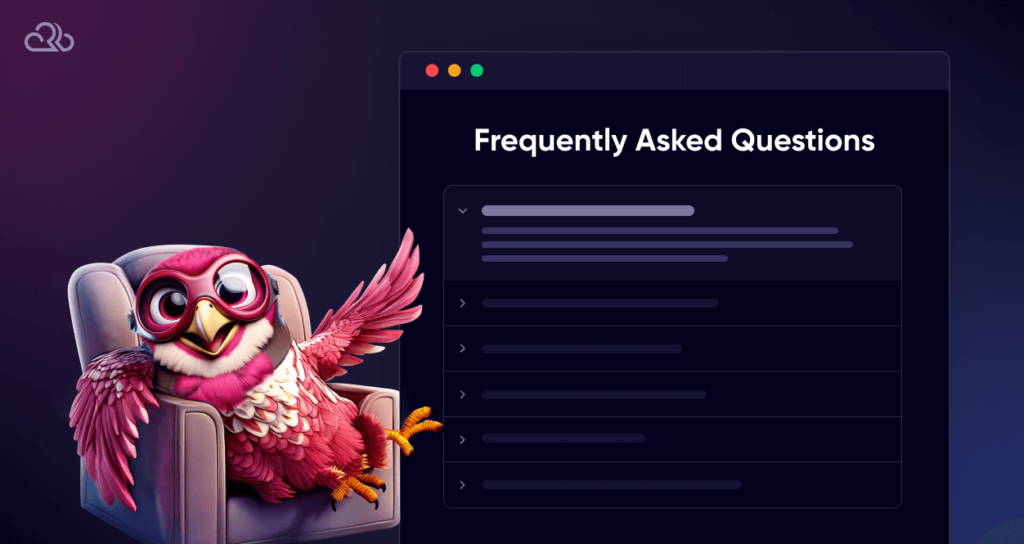The number of Distributed Denial-of-Service (DDoS) attacks grew by 53% in 2024 compared to 2023, emphasizing the importance of preventing DDoS attacks to safeguard online infrastructure and ensure uninterrupted service.
If you are a website owner, this stat can sound horrifying.
The rise in DDoS attacks is not just concerning for corporations but also for small to medium-sized businesses, with e-commerce, LMS, and community sites among those targeted more often.
Unfortunately, the consequences of these attacks are immediate and very severe.
But that’s not the case if you use Rapyd Cloud to host your website. Our hosting platform uses some of the most advanced techniques to save you from DDoS attacks.
In this post, we’ll dive into how DDoS attacks happen and how Rapyd Cloud’s advanced protective measures ensure your site remains online and secure.
Understanding DDoS Attacks
A DDoS attack aims to disrupt the normal operation of a website, server, or network. It does so by overwhelming the target with a flood of internet traffic at once. DDoS attacks use numerous compromised computers or devices, which then hit your website at the same time. These devices are controlled by the attacker, who directs traffic to the website.
When the amount of traffic reaches the capacity of the target website server, it simply stops working. This results in slow loading, unresponsiveness, and oftentimes downtime.
Common Ways DDoS Attacks Happen
Here are some of the common methods of DDoS attacks, so you can get an idea of how exactly these hostile actions come about.
- Large Volume of Attacks: This is the most common DDoS attack in which the attacker targets the website with a sizable amount of traffic to consume the bandwidth. Once the bandwidth usage has peaked, legitimate traffic can no longer access the website or it becomes really slow or unresponsive.
- Protocol Attacks: These usually target specific network protocols or servers. This is dangerous because the requests can saturate the server’s connection tables, and as a result, legitimate traffic can’t make a connection with the server.
- Application Layer Attacks: The way it works is that the attacker mimics the behaviors of genuine users. However, they repeatedly hit the most resource-intensive pages of the website or make continued database requests, so your server resource gets exhausted.
Consequences of a Successful DDoS Attack
The result of a DDoS attack can be quite devastating, depending on its intensity. In fact, for a successful application-layer DDoS attack, the average cost of downtime is approximately $6,130 per minute. Let’s look in-depth at what can happen if your website is hit with a successful DDoS attack.
- Downtime: The most direct result of a successful DDoS attack, downtime can last from a few hours to days. You will likely have to reach out to your hosting service provider and explain the issue, and they might charge you additional fines for their help (talk about adding insult to injury).
- Lost Revenue: In what is a natural turn of events, you lose out on potential revenue when you fail to deliver the usual user experience to your customers. This is particularly hurtful and scary for small businesses that simply can’t afford such a scenario to occur.
- Reputational Damage: Losing out on temporary sales is one thing, but getting a reputational hit is a whole other story. Facing downtime or having a slow or unresponsive website can damage your brand reputation beyond repair – to the point it permanently decreases your customers’ trust in you.
How Rapyd Cloud Can Protect You From DDoS Attacks
Rapyd Cloud is not just a best managed WordPress hosting, but it is also a secure WordPress hosting. We understand just how disastrous DDoS attacks can be for your business. That’s why we employ a whole lot of features dedicated to preventing DDoS attacks from taking place.
Here are some of the measures we have taken to tackle DDoS attacks on our customers’ websites.
1. Advanced Traffic Filtering
Rapyd Cloud provides a multi-level traffic-filtering solution that separates harmful requests from legal traffic. It is powered by a Web Application Firewall (WAF) and easily integrated with our state-of-the-art cloud infrastructure.
The filtering solution monitors the way users interact with your website in real time. It flags and segregates the traffic for further examination in case it identifies unusual activity, such as an abnormal number of requests coming from a single IP address or atypical header attributes.
Why It Matters
This preventive approach ensures there is no possibility of downtimes or performance degradation as the traffic is filtered out before it can reach your website. Hence, genuine visitors can always smoothly access your memberships, courses, or subscription services.
2. Real-Time Monitoring
Cyberattacks are not one-time events, as attackers change or amplify their tactics frequently. Rapyd Cloud’s DDoS protection package includes 24×7 monitoring of application-layer requests, bandwidth usage, and traffic patterns for DDoS prevention. Its two key elements are:
- Anomaly Detection: The automated anomaly detection systems scan for activity in incoming communications that doesn’t correlate to normal usage. This could be surges in requests to certain endpoints or spikes in failed logins.
- Geo-Filtering: Certain geographic regions can sometimes produce disproportionate levels of traffic. Rapyd Cloud’s real-time monitoring identifies such trends, which could then apply geo-blocking or stricter rate limits as necessary to use and stop an in-flight attack dead in its tracks.
Why It Matters
Rapyd Cloud’s real-time monitoring sees to it that your response time is quick whenever your website comes under a DDoS attack. That means our systems are scanning and ready to respond if a cyber attack starts in the middle of the night or on a holiday weekend. That early detection is often what separates a small, manageable problem from a major outage.
3. Rapid Response Mechanisms
You don’t want your website to suffer one second. Thankfully, with Rapyd Cloud, it won’t since protection starts almost immediately against an ongoing DDoS attack. It includes:
- Immediate Traffic Rerouting: The traffic analysis result is automatically sent to our DDoS mitigation server to confirm if an attack is happening.
- Auto-Scaling Resources: If you think an attack can only be tackled by simply increasing bandwidth for some time or you don’t want any potential downtime at all, there is the option of auto-scaling. Turning it on will immediately increase the bandwidth.
Why It Matters
By making the mitigation process as swift as possible, Rapyd Cloud makes sure that your website is always active. Even if it faces downtime, it would be practically unnoticeable to your customers.
Rapyd Cloud: The Security-first WordPress Hosting
With Rapyd Cloud at the hosting helm, you get a full suite of security features for battling menacing DDoS attacks, from fast response mitigation to advanced traffic filtering and real-time monitoring. As a WordPress hosting with DDoS protection, we deliver a complete set of future-ready tools and strategies to protect your WordPress website in every way possible.
Frequently Asked Questions

1. What is a DDoS attack, and how does it affect my website?
A DDoS attack is a way to make your website unavailable by redirecting a lot of traffic to it at once. It can cause downtime, slowness, and unresponsiveness.
2. How does Rapyd Cloud detect DDoS attacks?
Rapyd Cloud has real-time monitoring in place to detect any DDoS attacks.
3. Is DDoS protection included in all Rapyd Cloud hosting plans?
Yes! All of Rapyd Cloud’s hosting services, including managed WordPress hosting, have DDoS protection. To make use of these security measures, you don’t need to buy any add-ons.
4. Can DDoS attacks lead to data breaches?
DDoS attacks don’t directly lead to data breaches. However, they can be a distraction to a much larger attack to access the data.
5. How can I monitor my website for potential DDoS attacks?
With Rapyd Cloud, you can monitor your website traffic straight from our intuitive dashboard. This way, you can keep an eye on any sudden traffic discrepancies and take measures if they seem malicious.
6. Can Rapyd Cloud also protect MemberPress or BuddyPress sites from DDoS?
Whether you use Rapyd Cloud as your BuddyPress hosting or MemberPress hosting, it has the necessary mechanisms in place to protect your site from DDoS attacks.





